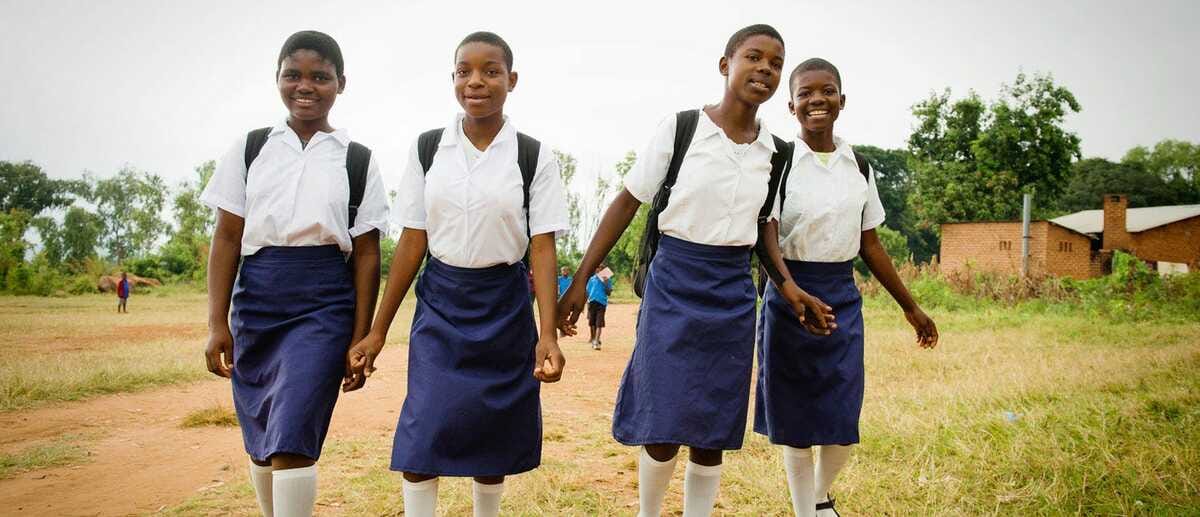
MALAWI: Malawi will Friday, 8th April 2022 launch the Education Plus Initiative at the High-level Intergenerational Dialogue on Generation Equality and Women’s Leadership during an event to be held at Bingu International Conference Center (BICC), Lilongwe.
The initiative's launch comes as adolescent girls and young women in Malawi continue to face multiple marginalizations, unequal gender power dynamics, and a higher risk of contracting HIV.
They are 2.5 times more likely than their male peers to acquire HIV, and more than 51% of new HIV infections in the country are among this group.
Despite recent progress, only 27 percent of girls enroll in secondary school, 13 percent attend, and less than 5 percent complete secondary education.
The country continues to have a high rate of adolescent pregnancy – 29 percent of adolescent girls aged 15–19 are already mothers or pregnant with their first child, and the proportion is growing.
The COVID-19 pandemic has exacerbated these vulnerabilities, necessitating a renewed comprehensive response and action to ensure girls' and young women's health and education rights today.
Adolescent girls in Malawi are especially at risk of dropping out, and digital divides prevent many from accessing remote learning.
Gender-based violence, child marriage, maternal mortality, unintended pregnancy, HIV, and other sexual and reproductive health consequences have all increased as a result of the pandemic.
One in every five girls has been sexually abused before the age of 18.
Adolescent girls and young women are also burdened with unpaid care and domestic work, which reduces their chances of ever returning to school.
There are few opportunities for skill development for the many people who are not in school.
The loss of livelihoods over the last two years has the potential to entrench and trap millions of people in cycles of poverty and extreme vulnerability.
Malawi is not alone; the AIDS epidemic is disproportionately affecting many countries in Sub-Saharan Africa.
Every week, about 4 200 adolescent girls and young women in Sub-Saharan Africa become infected with HIV. In 2020, five out of every six adolescents aged 15 to 19 who were newly infected with HIV in the region were female.
And, in 2020, an estimated 23 300 adolescent girls and young women died from AIDS-related illnesses, making it the second leading cause of death among adolescent girls and young women after maternal mortality.
There is evidence that education provides a protective advantage for girls in terms of lowering their risk of HIV infection. In some countries, completing secondary education by adolescent girls reduces HIV infection by up to half.
In response, five UN agencies - UNAIDS, two UNESCO, UNFPA, UNICEF, and UN Women - launched the Education Plus initiative in 2021 at the Generation Equality Forum.
The Malawi Government will join the United Nations this week at a high-level intergenerational dialogue on generation equality and women's leadership to launch the Education Plus Initiative in Malawi, in line with continental efforts.
The new five-year game-changing initiative calls for political action and leadership to accelerate policies and investments that promote adolescent girls' and young women's agency, as well as country growth and prosperity.
The initiative brings together government leaders, development partners, civil society, community, and young women leaders in a renewed push for free access to quality secondary education for all girls and boys by 2025, as well as a Plus package to protect health rights and deliver on gender equality and the empowerment of girls and young women in Africa.
In addition to universal secondary education, the initiative advocates for universal access to comprehensive sexuality education, the fulfillment of sexual and reproductive health and rights, the elimination of gender-based and sexual violence, school-to-work transitions, and economic empowerment.
Education Plus, launched at the Generation Equality Forum by five UN agencies — UNAIDS, UNESCO, UNFPA, UNICEF and UN Women — is an ambitious five-year high-level drive to accelerate action and investments for the empowerment of adolescent girls and young women and the achievement of gender equality in sub-Saharan Africa—with secondary education as the strategic entry point for providing the multi-sectoral plus package.
The initiative calls for free and quality secondary education for all girls and boys in sub-Saharan Africa by 2025; universal access to comprehensive sexuality education; fulfilment of sexual and reproductive health and rights; freedom from gender-based and sexual violence; school-to-work transitions, and economic security and empowerment.